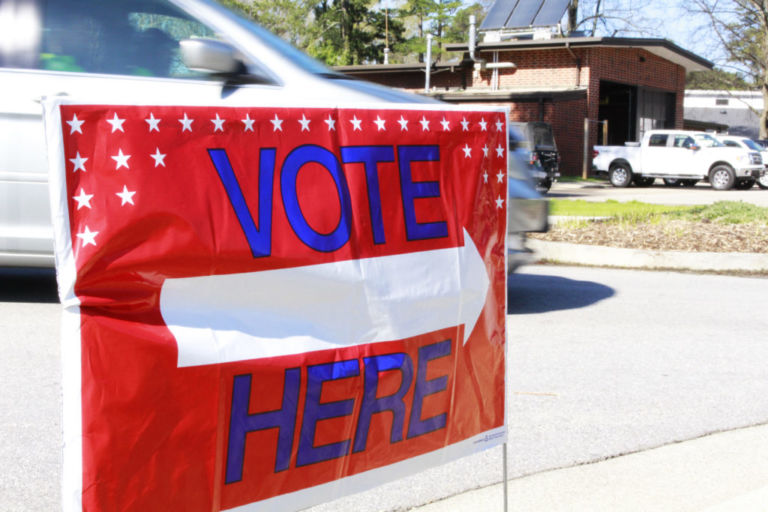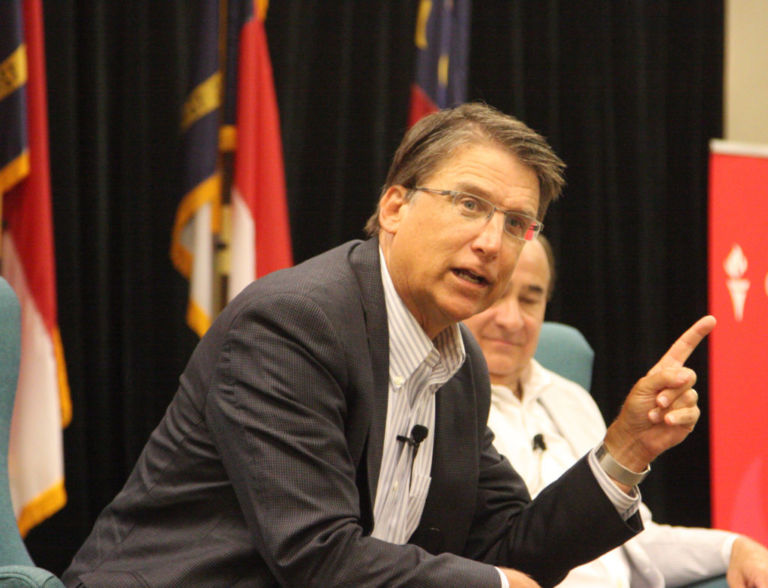John Locke Foundation research experts assessing Gov. Pat McCrory’s proposed 2014-15 budget adjustments offer the following assessment:
RALEIGH — Gov. Pat McCrory’s proposed $20.99 billion General Fund budget for 2014-15 would cover the state’s top priorities with a modest spending increase, while ensuring that an expected revenue shortfall does not create a long-term budget hole. John Locke Foundation experts offer that assessment after perusing the budget plan McCrory unveiled today.
“The 1.7 percent increase over the certified budget approved by state lawmakers last year falls well within the margins of sensible spending growth, falling below the annual increase in state population and inflation growth,” said Sarah Curry, JLF Director of Fiscal Policy Studies. “Just as important, the governor sets forth a plan that covers an anticipated revenue shortfall without taking actions that would set North Carolina up for long-term budget problems.”
McCrory’s plan appears to have set aside enough money from the 2013-14 budget to meet an expected shortfall, and the governor does not recommend using one-time, or nonrecurring, money to pay for ongoing expenses, Curry said. “In fact, in some cases it appears that the governor is relying on recurring money to pay off one-time expenses, which is certainly well within the bounds of responsible budgeting.”
The budget plan places a major emphasis on raising teacher pay, said Dr. Terry Stoops, JLF Director of Research and Education Studies. “Teachers would receive salary increases ranging from 2 to 7.1 percent, depending on experience level,” Stoops said. “Early-career school psychologists, principals, assistant principals, and school-based personnel would receive a $1,000 salary and benefit bonus under this plan.”
Not only does McCrory want to pay teachers more, he wants to pay them smarter, Stoops said. “The Career Pathways pilot program provides a critical first step,” he said. “Career Pathways is a system of teacher compensation that would reward North Carolina’s most talented and hard-working teachers. This is the state’s first teacher compensation plan designed by professionals, for professionals.”
The plan’s emphasis on teacher performance is a major strong point, Stoops said. If the governor is going to restore pay increases for teachers earning master’s degrees, limiting the increases to those who pursue degrees in their subject areas makes sense.
Stoops describes the McCrory plan as addressing “three T’s” — “teachers, textbooks, and talent.” In addition to teacher pay raises and paving the way for future pay increases for the best teachers, the plan includes a “much-needed increase” in textbook funding, Stoops said. “There has been near universal agreement that school districts require more funding for this basic need.”
“While not perfect, Gov. McCrory’s K-12 education budget hit the target,” Stoops added. “It addresses the core needs of our public schools in a thoughtful and responsible way.”
JLF researchers also take note of the governor’s decision to set money aside for future needs, even in the face of a tight budget picture. “He adds $50 million to the rainy-day reserve fund, adds $50 million for repairs and renovations, sets aside $50 million for a Medicaid reserve, and even includes a $100 million credit balance — essentially unspent money that can be directed elsewhere if necessary,” Curry said.
Analysts were not as thrilled about the increased reliance on federal funds to meet state government’s needs. “Given all of the problems with the bloated federal budget and long-term federal debt issues, it seems unwise for North Carolina to rely increasingly on Washington to pay state government’s bills,” Curry said.
A plan to reorganize the N.C. Department of Commerce and transferring some of its duties to a new Public Private Partnership for Economic Development also generates some concerns.
“While I am sympathetic with the idea of recurring savings from the decrease in Commerce’s budget , I would have wished that the governor involved the private sector in the state’s economic development by letting the private sector take the lead — not by joining in a partnership with government,” said Jon Sanders, JLF Director of Regulatory Studies.
Overall, Gov. McCrory’s budget plan marks a good first step in the state’s annual budget discussions. “The state Senate and House should find plenty to like in the governor’s proposals,” Curry said. “With this starting point, the 2014-15 state budget appears likely to continue moving in a direction that helps North Carolina meet essential state government needs while paving the way for greater economic growth.”


